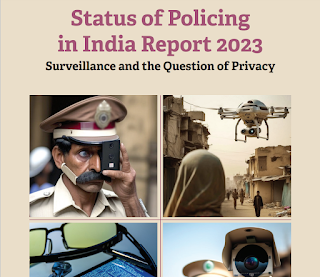All over India 356 cyber offences with political motive were reported in 2020. In 2016, there were 40 such reported offences, 139 in 2017, 218 in 2018 and 316 in 2019 all over India. Bihar reported 7 cyber crime offences with a reportedly political motive in 2020. It had reported 3 such offences in 2016.
In 2020, Tamil Nadu reported 108 cases, the highest number of such offences followed by 73 offences in Uttar Pradesh (UP). UP had reported 90 cases in 2019. Andhra Pradesh reported 67 cases in 2020 and 88 cases in 2019.
Bihar, Maharashtra, and Karnataka have the highest number of social media monitoring cells.
The high number of social media monitoring cells in these states is highly unusual in a context where the limitations imposed on State for surveillance are not properly legally defined. Such cells are presumed to be functioning without any kind of constitutional or judicial oversight in the absence of data protection laws. This provides them wide discretion to conduct digital surveillance of citizens. The conduct of Bihar, Maharashtra, Karnataka, Haryana and Punjab is noteworthy in this regard.
Bihar has 127 CCTVs available with the police as on January 1, 2022. The information obtained under RTI Act reveals that Bihar 1056 police stations are under CCTV coverage as of 2021. 952 police stations are installed with functioning CCTV cameras. This amounts to CCTV compliance in over 90 percent of State's police stations. The State has installed 5 facial recognition technology (FRT) system but only 1 is active.
The State has 1 cyber crime police station, 48 cyber crime cells and 48 social media monitoring cells as of 2021. Bihar reported 11 cyber crime cases registered under the Information Technology Act, 1402 cyber crime cases under the Indian Penal Code (IPC) in 2021.
These details have come to light from the recent "Status of Policing in India Report 2023:Surveillance and the Question of Privacy" by Lokniti-CSDS and Common Cause.
The report recalls how even in incidents where there is clear violation of the law, such as the Bhagalpur blinding case, the larger public opinion was in favour of the accused police officers.Drawing on the 1986 report of the Justice N.N. Singh Inquiry Commission in the “Bhagalpur Blindings” case which indicted several police officials for their involvement in the blinding of over 30 under-trial prisoners by pouring acid into their eyes during interrogation, allegedly to extract confessions, this 2023 report underlines that the uninformed perception of majority regarding the utility of CCTVs, social media monitoring cells, facial recognition technology is not an indicator of their appropriateness.
The report points out that the majoritarian public opinion need not always be taken at face value or seen as a justification for acts that go against human rights and constitutional values.

No comments:
Post a Comment